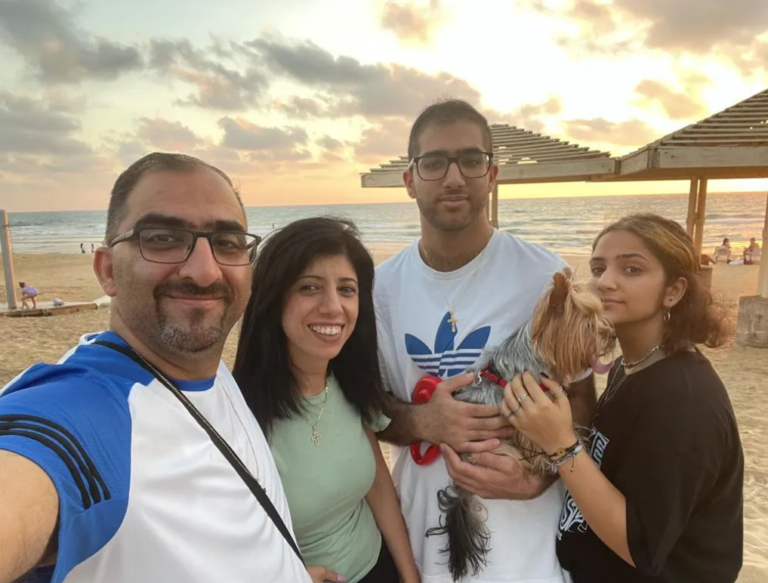By Kirollos Abdalla —
As an Arab Israeli, Saleem Shalash harbored hatred towards Israeli Jews. As a child of Arab parents who accepted Israeli citizenship inside the newly formed Jewish state, he clung doggedly to ethnic prejudices.
“All I dreamed of was to destroy this country, to cast out these infidel Jews,” Saleem said on Can I Trust the Bible? podcast. “They crucified my Savior.”
The enmity between Israelis and Arabs in the region runs deep, as evidenced by the conflagration between Hamas and Israel. As a Christian pastor in Nazareth, Saleem offers hope that the war and hatred can end in peace in love – through Jesus.
“Sharing the truth, sharing the love, that is our weapon,” Saleem says. “Start to search for peace. All of us can pray for peace.”
Saleem has seen firsthand the tolerance of community between the Jewish and the Muslim Arabs, and he’s shared these testimonies in front of the White House and the Irish Government. Saleem urges people to come to Nazareth to help, listen to the testimonies, and hear the truth as well.
“You know the truth when you see what God is doing,” Saleem says. “We have a lot of Jewish testimonies and a lot of testimonies from the Muslims. God is gathering Ismael and Isaac again, and we need to start gathering them together.”
Born in Nazareth, the hometown of Jesus Christ, Saleem Shalash was raised a Christian and a church-goer by his family; he’s not an Arab Muslim that converted to Christianity. According to Acts 2, there were Arabs in Jerusalem celebrating and worshipping alongside Jews in Jewish holidays, dating 600 years before the creation of Islam.
Now, he is also the senior pastor for his church called “Home of Jesus the King.”
“We believe that Jesus had a home in the past, he still does today, and he will until the day he comes again.” Saleem says
Saleem was taught to hate the infidel Jews growing up. Normally the antipathy runs in Muslims, but the kindred Arab Christians pick some of it up. In their case, they see Jews as killers of the Christ.
“Even when I became a believer, I only read the New Testament,” he says. “I was taught that the Old Testament was rubbish, that it belonged to the infidel Jews.”
But then Saleem attended the Israeli College of the Bible (known as ICB). He was among 12 Arab pastors, who learned form12 Jewish pastors.
“When I saw the Jewish people,” Saleem says, “I asked myself, ‘did they bring us Jewish Rabbis to teach us Christianity?’”
They ate together, studied together, and even prayed together.
A year later, Saleem went home asking God: “Why have you brought me to this college?”
God led him to Luke 15, the story of the Prodigal Son. God told him to read the story ten times over, and Saleem was led to a realization.
“I discovered that this story is the only story in the Bible where we don’t know the ending, if (the older brother) celebrated or not” the return of the prodigal, Saleem says. “When I asked the Lord why, he said ‘Saleem, it’s your choice.”
Saleem wept throughout that night, reflecting on the years of hatred he bore for the Jews.
“In a minute, (it felt like) cold water came down from my head to the rest of my body,” says Saleem. “When I went out I told my wife that God set me free from this hatred. I was the one suffering, not them.”
Saleem and his church are now helping their humanitarian aid center that has a mix of Christian, Muslim and Jewish families.
“We are helping both sides in our humanitarian aid center. Many people lost their jobs in Israel, and there’s also hungry people from the other side,” Saleem says. “You can find a Christian, Jew, and a Muslim Arab together, taking their needs and greeting one another, understanding they can live together in peace.”
The ongoing conflict between Israel and Hamas continues today. Saleem references this as the second holocaust.
“The first Holocaust, the church was silent. The second one, no way, we will not be silent,” he says “We’re going to shine in these dark days.”




